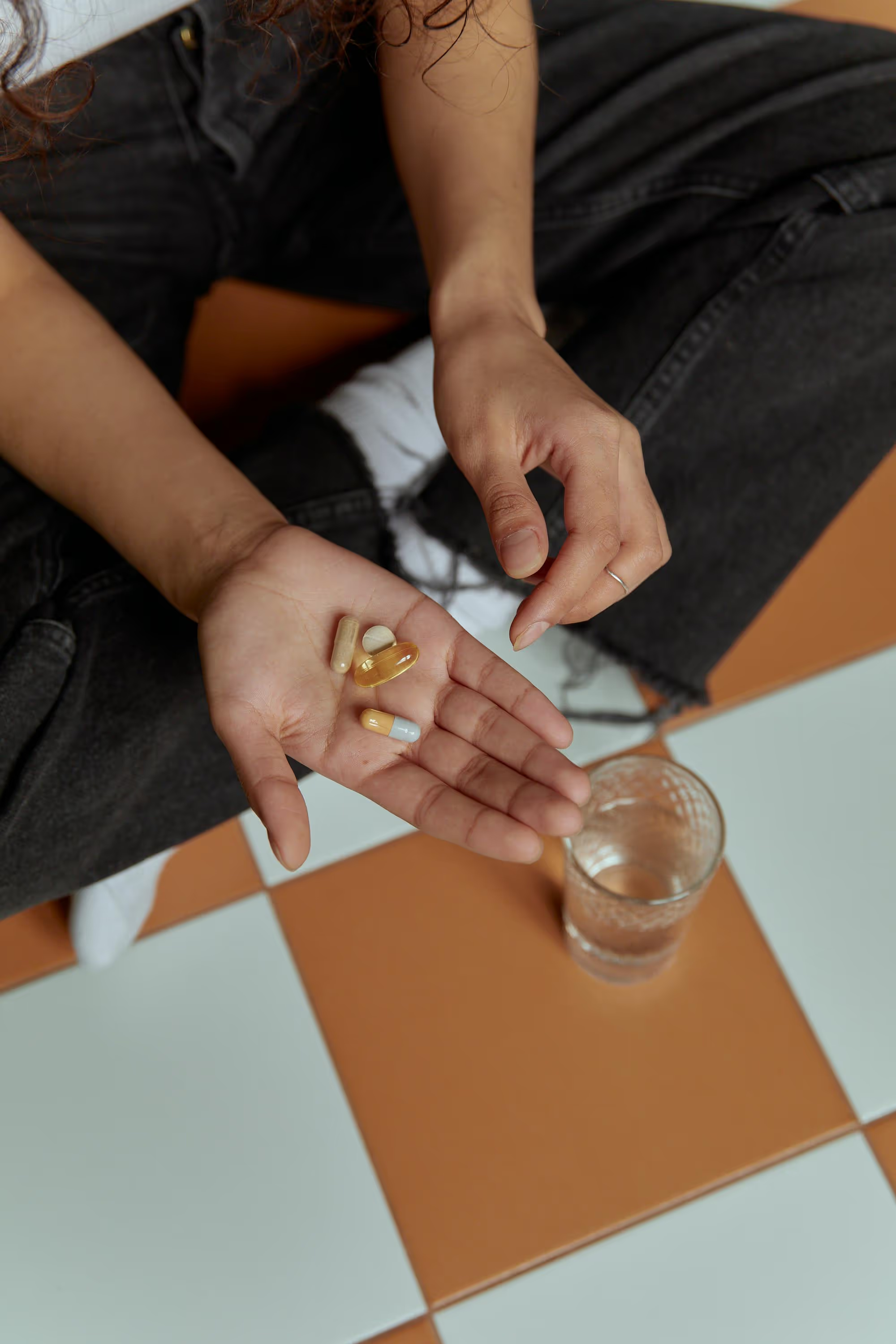5 Science-Backed Supplements to to Boost Athletic Performance

Introduction
With supplements being a billion dollar industry nowadays, more and more companies are coming out creating new products to persuade athletes of their benefits. Although supplements can play a significant role in this process, not all supplements are created equal. Some are backed by substantial scientific evidence, while others are little more than marketing gimmicks. In this article, we will explore the best supplements for athletes that will be your best bang for buck choices to get the most out of your performance, recovery, and overall health.
Creatine Monohydrate
Without a doubt, the supplement that gives you the biggest return on investment for your body will be creatine monohydrate. It is one of the most researched supplements out there on the market today, and has been proven to increase muscle mass, strength, exercise performance, and may even offer cognitive effects in some people. Creatine does this by increasing the availability of phosphocreatine, that way when the body needs a quick energy burst, such as sprinting or jumping, phosphocreatine donates a phosphate group to Adenosine Diphosphate to rapidly regenerate Adenosine Triphosphate (primary energy currency of the cell). This process is what allows the body to provide a quick supply of Adenosine Triphosphate to allow for sustained muscle contractions throughout sprinting or other high-intensity exercise. Creatine can be taken by a loading phase of 5g serving 4 times a day for 5-7 days if you need to saturate creatine muscle stores quickly for a competition followed by 3-5g a day to maintain. Alternatively, you may also start with 3-5g a day however it will take around 3-4 weeks for your muscles to be saturated with creatine. Some people may have some digestive issues when doing a loading phase, so choose which supplementation method works best for you depending on the way you feel. It is also very important to stay well hydrated when taking creatine as this will increase the water retention in muscles. Lastly, although creatine has been shown to have these many benefits, they are not as massive as some people may think. However, for an athlete or even the regular citizen just trying to improve their health, even the 1% can make a massive difference in order for you to reach your fitness goals.
Protein Powder
Protein powder, just like creatine monohydrate, is a supplement that has been out there for many years with countless studies showing the benefits it can have on the human body. Of course, most times it's better to receive your protein from whole foods such as chicken, meat, or fish. However, for most people this isn't always possible and protein powders such as whey, casein, and plant-based proteins, provide a convenient way to meet daily protein requirements to support muscle growth and recovery. Protein powders also have a very long shelf life, and can be a much cheaper alternative per serving compared to some high protein whole foods. The main downfall is that some people do not tolerate these protein powders very well, therefore it is key to experiment with the different types of powders to find what works best for you. It's recommended to try to stick to some type of high quality whey protein as this will be the fastest -digesting and the one highest in EAAs and BCAAs. However, if you are vegan then it is recommended to get a high quality vegan protein that contains all EAAs if possible. In conclusion, protein powders can offer a convenient, versatile, and effective way to increase protein intake, support muscle growth and recovery, manage weight, and cater to various dietary needs.
Caffeine
Caffeine is a powerful ergogenic aid that improves endurance, strength, reaction time, and mental focus. It stimulates the central nervous system, reducing perceived effort and fatigue. Caffeine has been around for many years, and was even used in wars to give to soldiers on front lines to help them stay awake and alert during long missions and combat situations. For athletes, it is generally recommended to consume around 1.2-2.5 mg per pound of body weight 30-60 minutes before competition. It is widely used in competition around the world today to give athletes that extra edge, there's no doubt in its benefits and the numerous studies that have proven them, however caffeine supplementation does not come without its downsides. High doses of caffeine can cause anxiety, restlessness, and jitteriness which can lead to lack of sleep and even insomnia, especially if taken later on in the day. Additionally, regular use of caffeine can lead to tolerance, meaning higher doses are needed to achieve the same effects. Withdrawal symptoms, such as headaches and irritability, can occur if caffeine consumption is abruptly stopped. In conclusion, numerous studies have validated the performance-enhancing effects of caffeine across various sports, but with the few side effects caffeine can have, it's essential to experiment with different doses at different times to see if caffeine supplementation works for you.
Electrolytes
Although maybe not as useful to everyone as the above three supplements mentioned, electrolytes, specifically to athletes, can play a big role in maintaining hydration, muscle function, and nerve function when training at high intensities. Electrolytes are minerals in our body, such as sodium, potassium, and magnesium that have an electric charge. These three minerals can play a massive role in maintaining water balance and hydration, muscle function by allowing us to contract and relax muscles as well as decrease the risk of muscle cramps, and nerve function by transmitting electrical impulses that control muscle movements. However, electrolytes are often over exaggerated with the effect they can have on the body, especially when an athlete is already dialed in on their nutrition and is making sure they are adequately hydrated and fueled before a big workout. An overreliance on these supplements can also cause athletes to neglect the other crucial components of nutrition and hydration. Like with all things however, everybody's body reacts differently, so if you've found electrolytes work for you, then go for it. Make sure you are following the proper dosage on the label of whatever electrolytes you decide to purchase and consume them about 30-60 minutes before a heavy workout for maximum benefits!
Omega-3 Fish Oil
Omega 3 fatty acids are an essential nutrient required in our diets that if consumed can lead to an improvement in heart health, brain function, eye health, skin health, and even have anti-inflammatory properties to reduce inflammation within the body. However, with the standard westernized diet, the intake of fatty fishes such as salmon, sardines, and mackerel has gone down. Directly leading to people underachieving the recommended dosage of around 500-600 mg EPA + DHA a day to prevent deficiencies. These deficiencies in the underconsumption of omega-3s can lead to cognitive decline, cardiovascular problems, and even inflammatory conditions. Luckily, achieving enough omega-3s is a simple fix, as if you are an irregular fish eater, the 500-600 mg dosage of EPA + DHA should be enough for you with a higher dosage of 1000 mg per day of EPA + DHA is most likely needed for non fish eaters. Of course, as always preached on our platform, if you are able to get your nutrients and minerals from whole foods the better. So simply consuming more fish can easily rid of this problem, however if you simply don't like the taste or are concerned with the heavy metals that can be found in fish, then using omega-3 fish oil supplements are essential to reap the benefits and not develop deficiencies that can hinder your athletic performance and overall health.
Conclusion
Of course, there are dozens of more supplements within the industry, many that have been debunked as well as many up and coming supplements that are gaining more promise due to all the up and coming research. However, the four supplements stated above are, in my opinion, the only tier one supplements in today’s world that are worth your money and are backed by countless years of research. Remember that if taking these supplements, they are not a substitute and should be taken as part of a healthy and balanced diet and lifestyle. For example, if you are always in need of caffeine to get through the day, but are also eating a lot of processed food with little to no nutritional value, then maybe a fix to your diet can solve your problems rather than supplementing with stimulants and reaching for that quick fix pill that everyone is looking for nowadays. If you look to research more about numerous different supplements in the industry, below is a great link to do so!
Try our app for free. More recipes, more features, and a better you.

